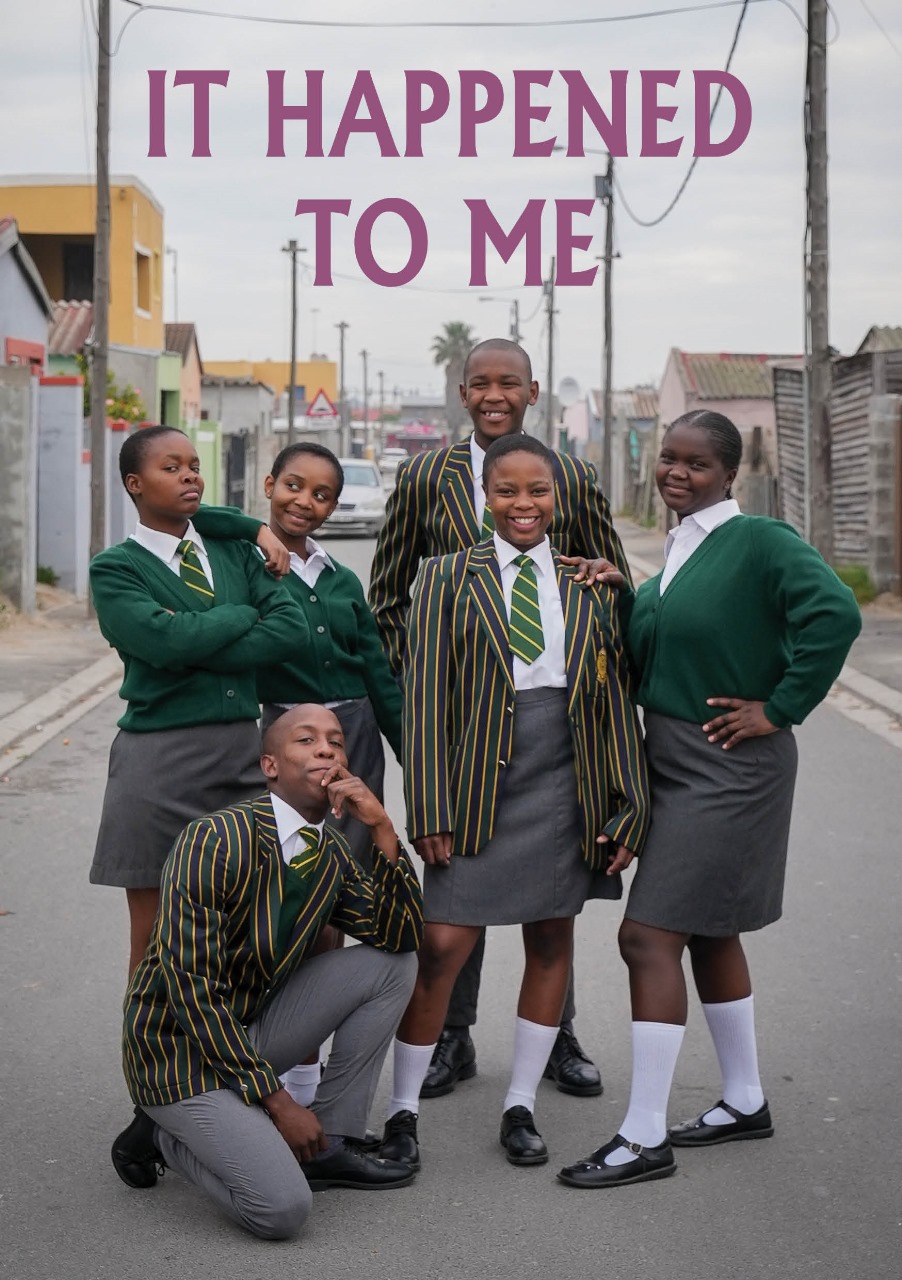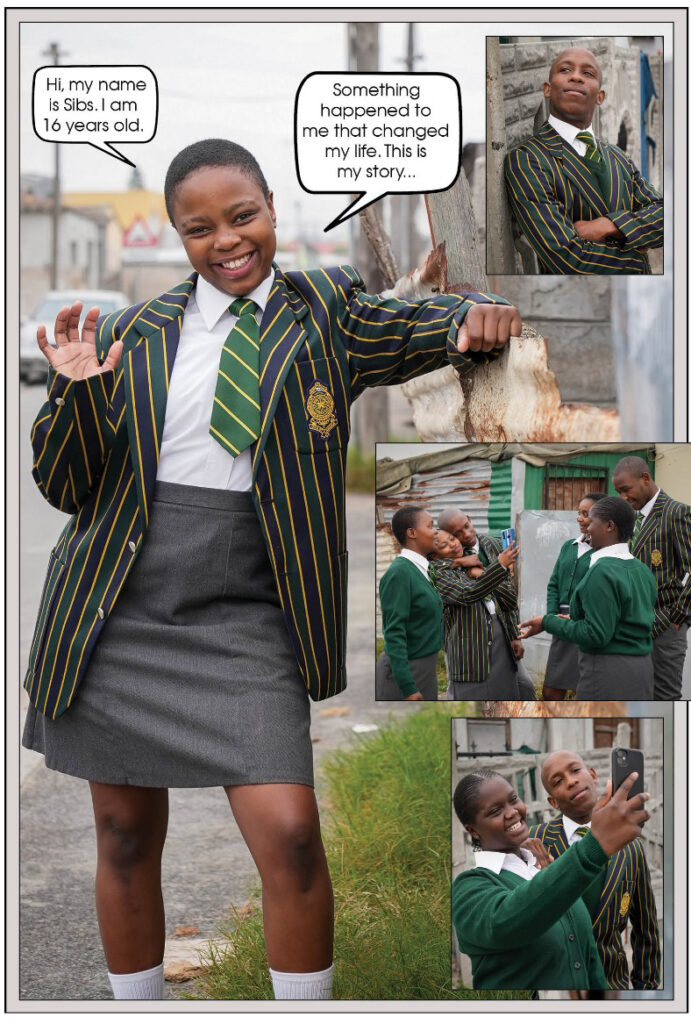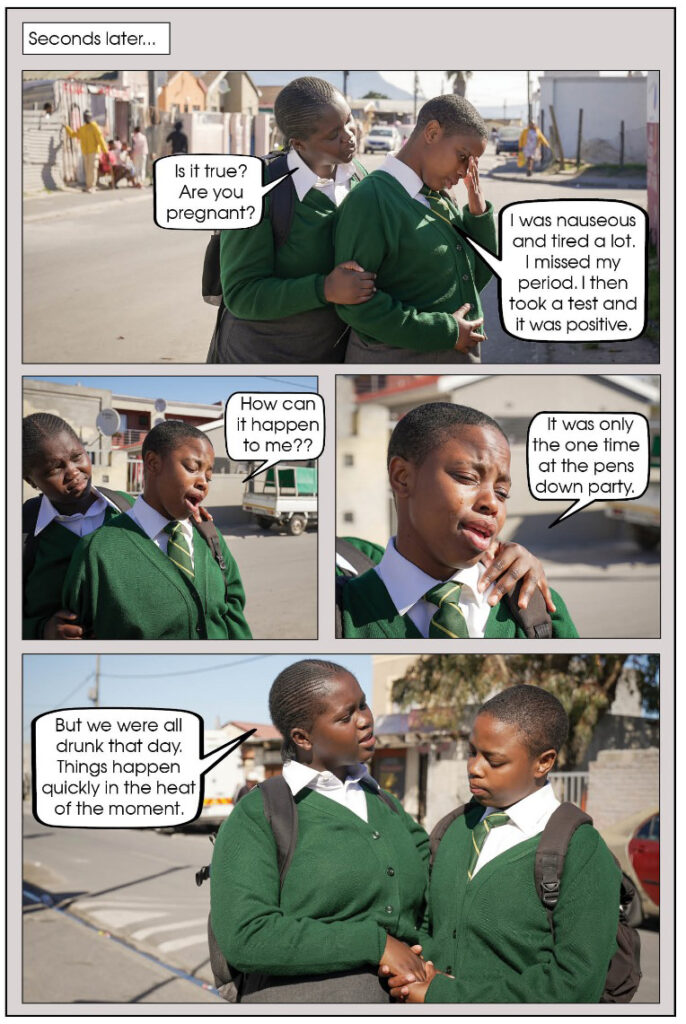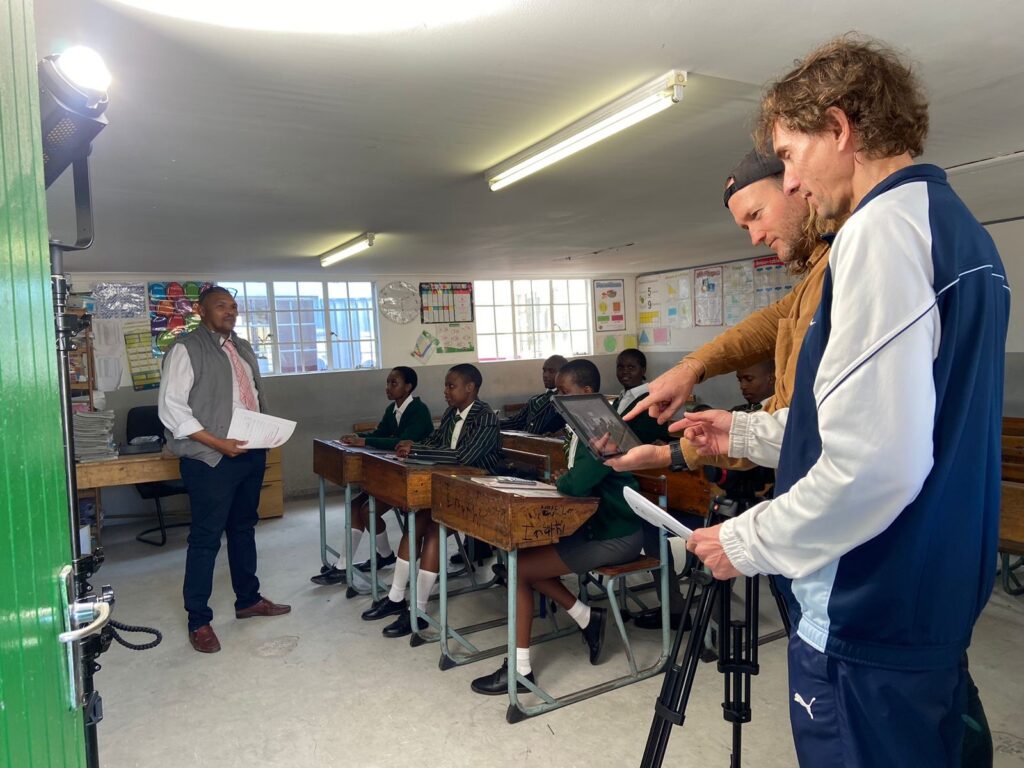Teenage pregnancy is a growing crisis among adolescent girls and young women (AGYW) in South Africa, with the number of teenage pregnancies in the country having doubled over the past four years. These pregnancies pose several social, health, economic and other risks, from girls dropping out of school and never completing their education to high rates of maternal deaths among young mothers. One aspect of addressing this issue is to equip AGYW with information about pregnancy and their sexual/reproductive rights so that they can make more informed choices. This is exactly what the “It happened to me” photo novel aims to achieve.

Senior lecturer at the Africa Centre Dr Burt Davis’s previous and second photo novel, developed in 2021 in collaboration with the Western Cape Department of Health on the topic of diabetes (read more about it here), provided valuable insights into the effectiveness of photo novels in health communication. Using these insights, this story about teenage pregnancy was developed in collaboration with Prof Elizabeth Lubinga from the University of Johannesburg (UJ).
The participatory approach played a key role in the end product: “The fact that all role players – including teenage girls, community organisations and local schools – were involved with the inception, conceptualisation and development of the booklet helped a lot with its authenticity and realism,” Burt said. This included sourcing local actors from the shoot location in Gugulethu near Cape Town.
The effectiveness of the booklet is currently being tested among high school girls in schools in Soweto. This is done by comparing the photo novel to a more traditional health brochure to assess knowledge, attitudes and practices about teenage pregnancy among high school learners.
The test phase has not been plain sailing so far, as data collection is proving to be a challenge. Despite handing out hundreds of consent forms (the first step in getting the girls to participate) to teachers, the majority were not returned. “With such an important and topical issue, one would think that educators would be keen to help drive this initiative – and many were very enthusiastic initially,” said Burt. This lack of follow-through and drive from teachers – who are in good position to influence and support the girls – may point towards another dimension of the issue of rising teenage pregnancies. Talks are underway with the Gauteng Department of Education to improve the situation. Data collection is set to continue in 2024.
Nevertheless, in communities where girls did participate, the response was very positive, as evidenced by the feedback from the project manager at UJ, Tantasawa Ndlelana: “The community was very happy to see people coming in and doing what you were doing. The girls are recognised and people have been asking to be involved next time.”


The photo novel tells the story of Sibs using photographs and captions, relatable characters and language that teenagers would use and understand.

Dr Burt Davis and photographer Brian Seymour on set at a school in Gugulethu.
